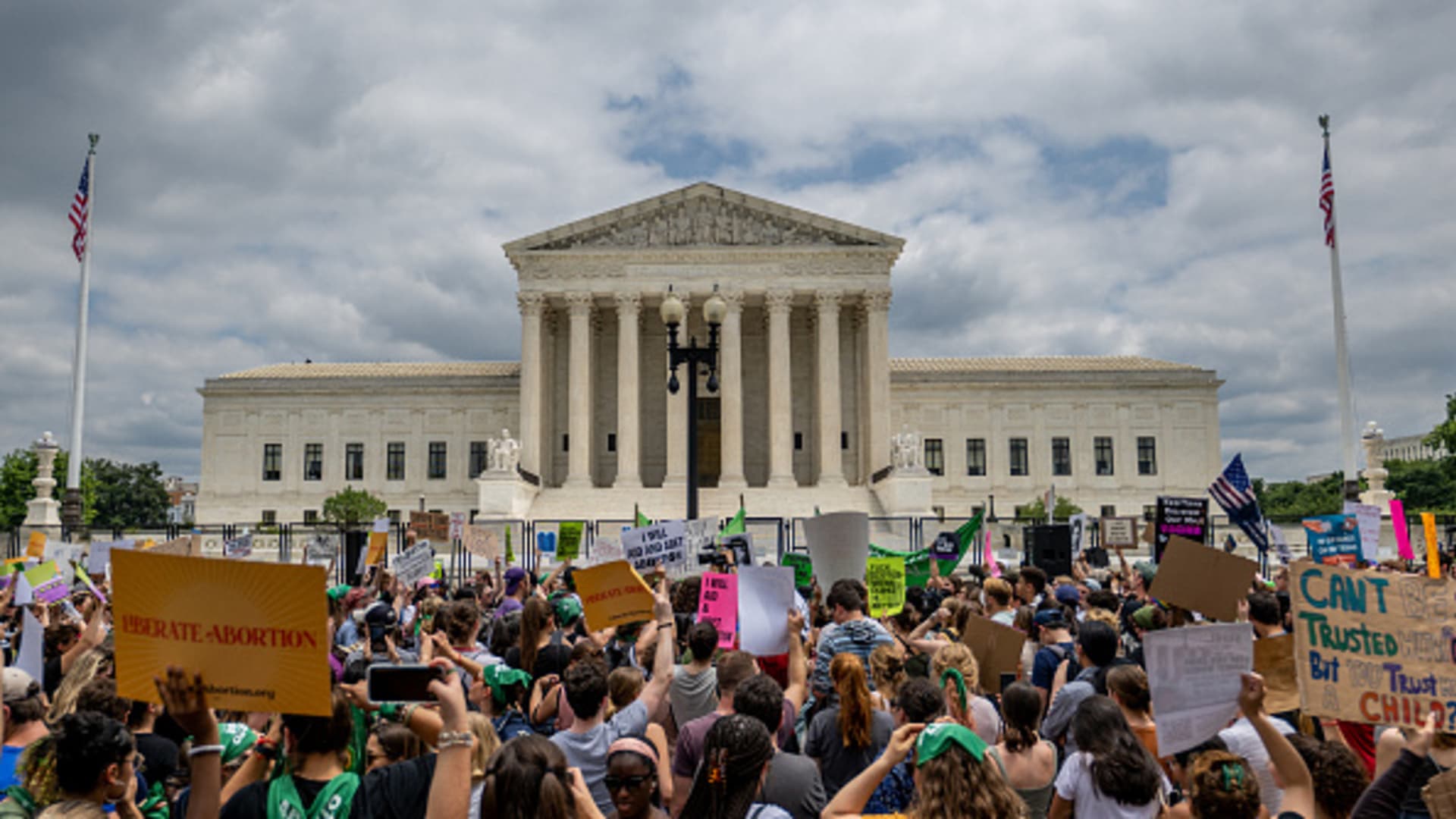Products You May Like
The Supreme Court’s recent 5-4 decision to overturn Roe v. Wade and allow states to outlaw abortion could have long-lasting financial effects on those seeking the procedure, researchers have found.
Those who are unable to get an abortion and later go on to give birth are more likely to experience “an increase in household poverty lasting at least four years” compared to those who had access to one, according to the University of California, San Francisco’s Turnaway Study, one of the most authoritative studies on the subject. It followed 1,000 women who sought abortions over a five-year period ending in January 2016.
The researchers also found that children born as a result of their mothers not being able to have an abortion were more likely to live below the federal poverty level than children born to women who were able to obtain abortions for unwanted pregnancies earlier in life.
People who are denied abortion access may need to make “daily economic calculations,” including whether they have enough money for rent, gas and child care, says Leila Abolfazli, director of federal reproductive rights at the National Women’s Law Center, a non-profit group that advocates for women’s and LGBTQ rights.
“These are the struggles that women will be going through as they’re forced to carry a pregnancy to term when they otherwise would have had an abortion because they did not feel they had the economic security to move forward,” she says.
Abolfazli added that with many Americans still recovering from the lingering effects of the broad economic shutdowns caused by the pandemic and the looming potential recession, parents may need to make “hard decisions” when it comes to raising their children.
“Do they skip a meal? Do they skip health care that they need, so that their child can get it? How do they support their children that they already had? One of the reasons women often have abortions is because they want to support the family that they already have,” she says. “The Turnaway Study shows that those [previous] children suffer more when people are denied their abortions.”
On the whole, the Turnaway Study found that women who were able to have an abortion were more financially stable and were able to raise their kids under better conditions.
A separate 2018 study published in the American Journal of Public Health, which used data from the Turnaway Study, similarly found that women who were denied abortions had higher odds of poverty six months later, and were more likely to be in poverty four years afterward.
The study also found that women who were denied abortions were less likely to have full-time jobs six months after their denial, and for the next four years were more likely to be on a public assistance program.
The Supreme Court’s ruling gives the states the power to set their own abortion laws. It has already been banned in several states including Wisconsin, Alabama and Kentucky, while states like Texas, Mississippi and Tennessee are expected to ban the procedure soon.
Sign up now: Get smarter about your money and career with our weekly newsletter
Don’t miss: Fed raises interest rates in biggest hike since 1994: Here are 2 moves to make with your money
